Big Board II - 256K 1.44MB CP/M
19 inch rack mount (although it never lived in a rack) built in Paris in 1985 while working/living there for a couple of years. The CPU, an 8 bit Zilog Z80, runs at a breath taking pace of 4MHz. While it is an 8 bit unit this one has whopping 256k of ram (that's 1/4 of a meg - which for the day was quite large). Storage is in the form an an 8 inch floppy disk drive providing an enormous 1.44 megabytes.
The operating system pre-dates Windows, Linux and MacOS. CP/M (Control Program/Monitor). Commandline only!
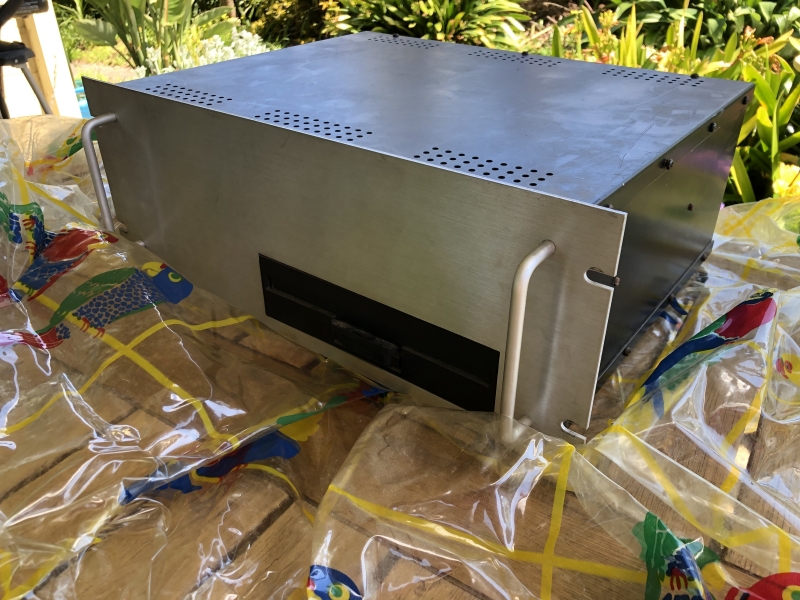
Rear panel features: reset button, composite video, 2 x RS232, parallel (printer) port, ? (keyboard), Fan, Power switch, power plug.
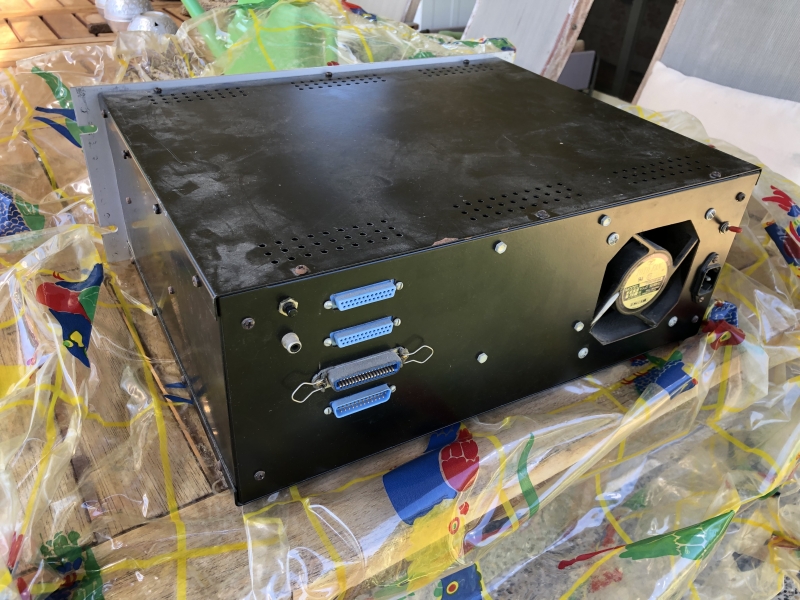
Storage: Massive 1.44 megabyte floppy disk. It ran for a good few years.
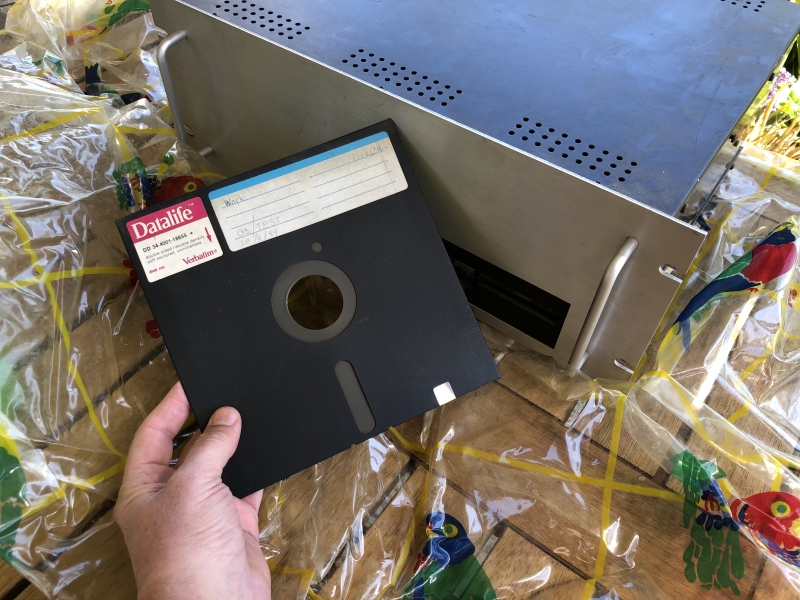
BigBoard II: 4Mhz CPU - 8 bit, hardware modded 256k hack (quadrupled ram size). (Yes, that was four mega hertz). I think my watch goes faster - and has more ram and flash storage too.
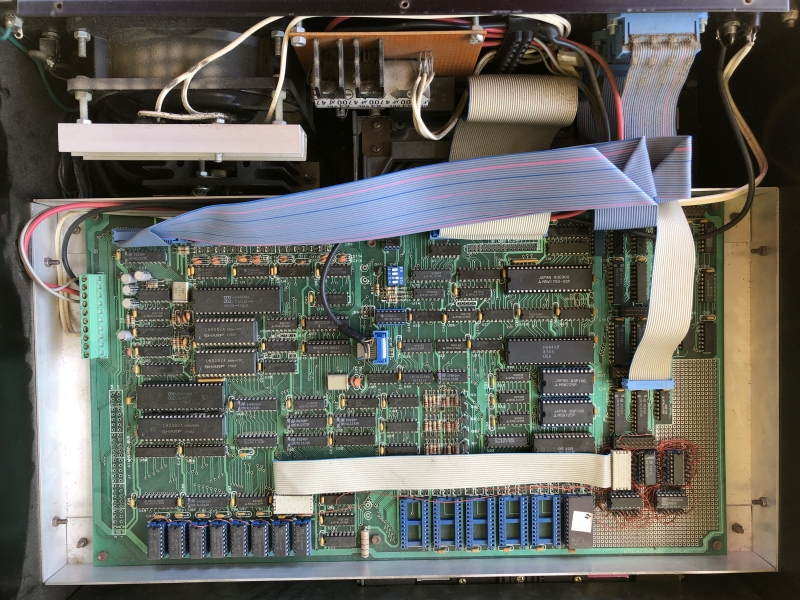
Hardware paging register (design with help from John P - who went on to design and build the first newborn baby hearing monitors)
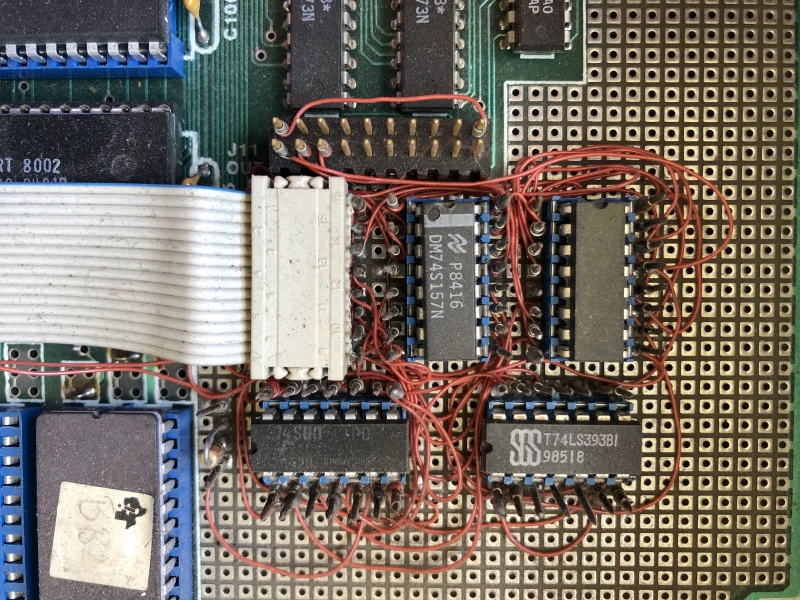
Memory hack: The original 4164 64K ram chips were replaced with 41256 256K chips quadrupling the board's capacity.
This ram hack contributed to almost winning the Paris World Othello championship in 1986, almost beating Intel's early x86 16 bit CPU. The AI software model, written in Fortran, didn't have early win detection, leading to the situation where annihilation of the opponent was considered a worse outcome than continuing to the end (and ultimately defeat only receiving 2nd place). The champion came over to congratulate me, counting my chickens for me before they had hatched. His system's detection saw his impending loss and predicted my win, doh!
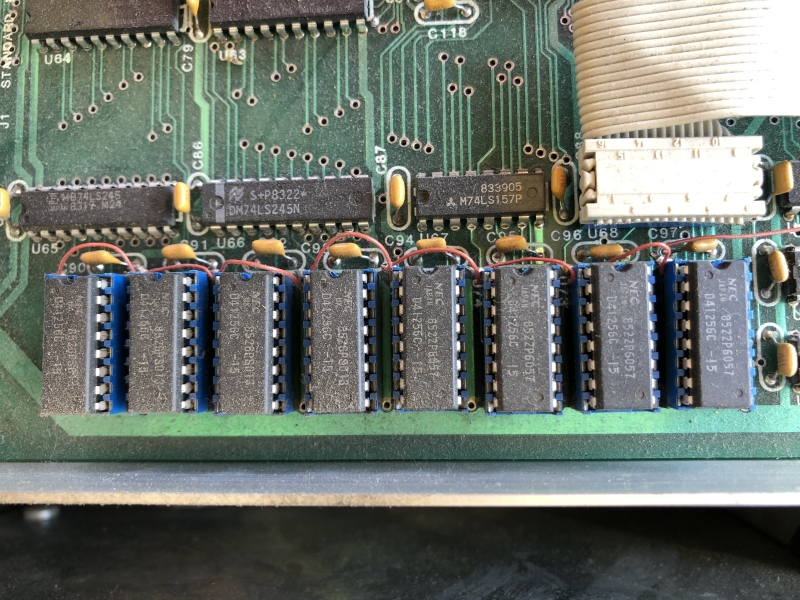
Internals: The 8 inch floppy's plain old stepper motor clearly visible.
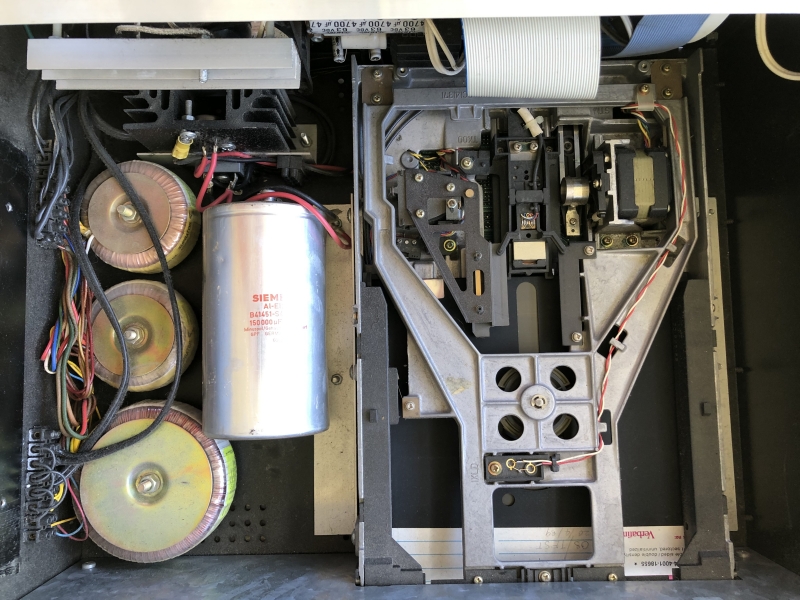
PSU: The power supply produced 5 volts and 12 volts but also -ve 12 volts required by the RS232 communications. German made toroidal transformers purchased back in the day. The PSU was completely linear and needed a very large smoothing capacitor. Switching power supplies, while known, were quite rare. There were no switching power FET transistors back then.
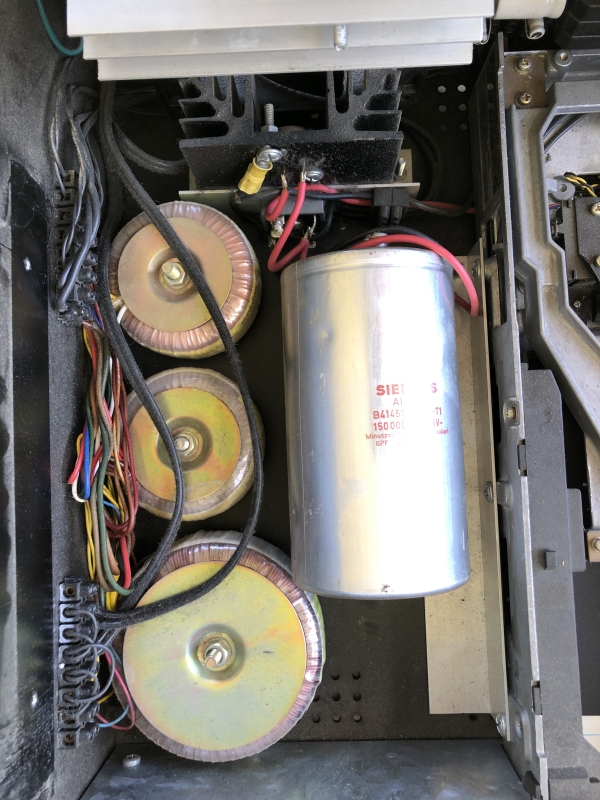
The disk head is larger than my finger! I think you'd easily fit 20T in the space of this floppy drive today. That more than 1 million times the data stored on this floppy drive.
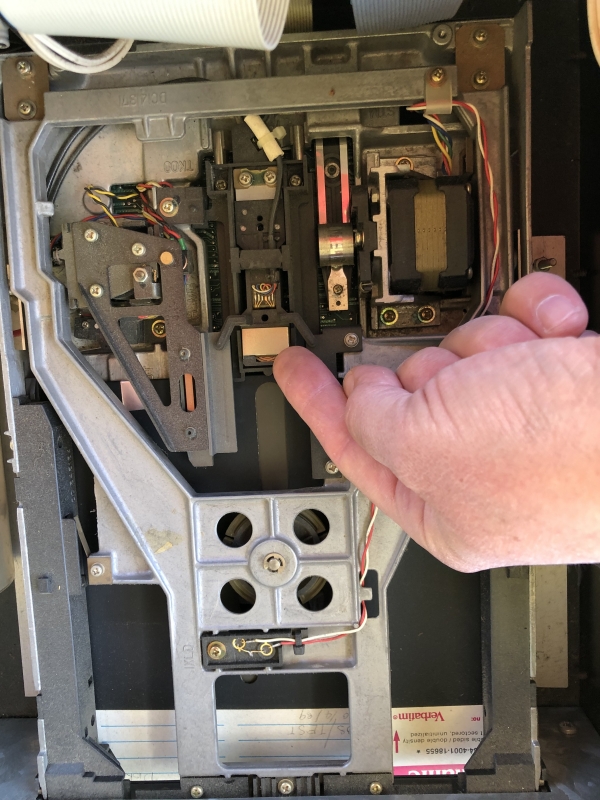
Software
WordStar: The 1st ever word processor

SuperCalc: 1st ever Spreadsheet (VisyCalc on the TandyTRS80 might actually been 1st)
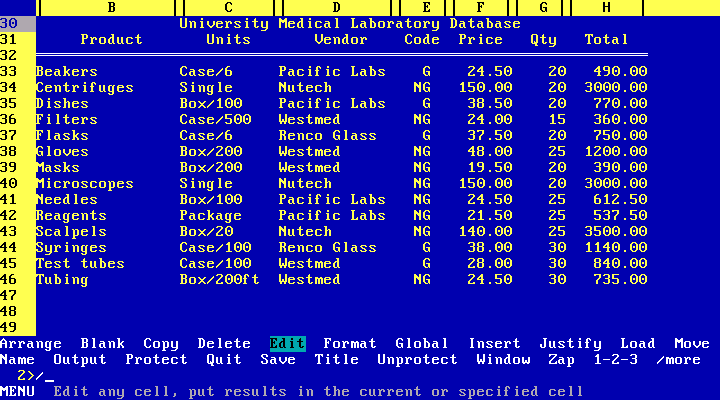
Adventure (game)
XYZZY the first ever game magic word. Adventure was the first game and it dates from 1979. It ran extensively on this machine.
Adventure, the game, was responsible for my never playing another game for the rest of my life. The fear of addiction, which is now a proven phenomenon, turned me off. Space Invaders at the pub was the only exception.... actually maybe there are a couple of others too. Beer and games, very bad. Don't do that.
Turbo Pascal
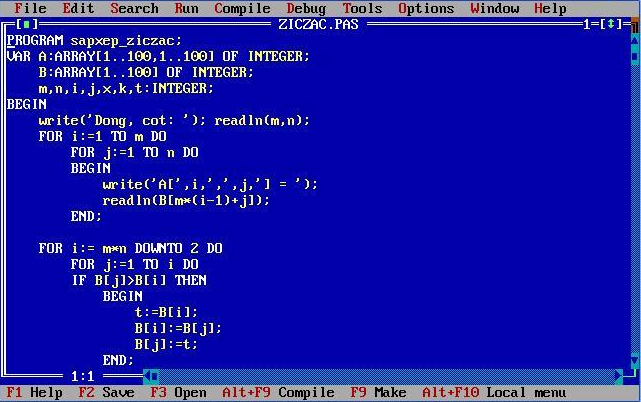
Turbo Pascal was used extensively on this computer as it was on the Big Board 1 before it.
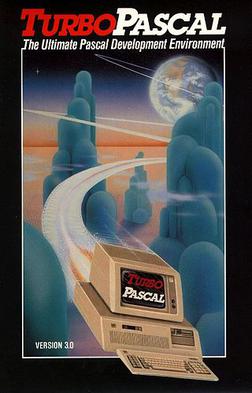
It turned out, while working in France, that a work colleague (Werner) had Philippe Kahn as his mathematics professor. Kahn went on to establish Borland International which sold software development tools for CP/M computers for the IBM PC and many other brands using lots of different CPUs.
A more complete history is here. It's worthy of noting that Kahn was in fact not the original developer of the compiler, that honour goes to Anders Hejlsberg who now works at Microsoft.